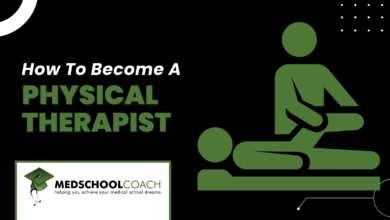As much as I would like to be able to tell you that the only advice you need to ace your core clerkships is my advice, truthfully, the third year of medical school is probably one of the least standardized experiences across the nation. While this is not necessarily a bad thing, this standardization definitely means that you can’t take what I say as gospel. Your 3rd year experience (more likely than not) will be very different than mine. Thus the best advice I can give you is to find an upperclassman that can enlighten you about specific aspects of the clinical years at your school. Try to do this around December or January of your second year so that you can use their insights to create a strategic schedule for the rotations that will follow. With that disclaimer out of the way, here’s my top 5 tips for excelling during the 3rd year of medical school.
1. Read about how you will be evaluated – As students in the classroom, we are trained to read the syllabus on day 1 to figure out what we have to do to get a certain grade in the class. While this may seem obvious, for some reason, when you shift from being a student in the classroom to being a student in the clinic, such a basic instinct goes away. Maybe it has something to do with the subjective nature of the grading or maybe it has to do with an over-reliance on the advice of upperclassmen, but whatever the reason – don’t do it! Not reading the grading rubric is such a missed opportunity. Much of your clinical grades is based on how well you manage others’ impressions of you. If you start strong by subtly highlighting what your evaluators are looking for, you only increase the chances that the rotation will end in your favor.
||Read: Reflections on the First Year of Medical School||
2. Request actionable mid-term feedback – If your institution makes such sessions mandatory, then your life is a little bit easier. If not, request to meet with your clerkship director to figure out how you are doing. Try to do this sometime during the middle of your block. This is a time for you to let them speak about your performance, so ask open ended questions and listen. Take their criticisms to heart and try to modify those things that you aren’t doing so well. Don’t be defensive or try to argue for a better grade. Remember, you’re only in the middle of the rotation, so your grade isn’t set in stone, but being “difficult” now may really hurt your final grade.
The one time you should be difficult is if your clerkship director has nothing to say. Vague compliments and general statements aren’t helpful. You should push such a clerkship director to meet with you again after they have had some time to prepare specific feedback. It may be helpful to suggest references (other attendings or residents) that they can talk to in order to get a better sense of where you stand. If it’s still unclear after your second meeting, I think you should be blunt and simply ask what your grade would be today and any specific tips or advice that they can provide for advancing to the higher grade.
3. The NBME shelfs are hard, so study – The heading here says it all. While you can “kill it” clinically, at most schools, the NBME shelf exams will also likely factor into your final grade. Thus you will probably need to do some studying outside of your clinical experience to do well on these exams. The shelfs often highlight material that isn’t exactly clinically relevant (What can I say? Pathologists need to make a living too). What study resources to use for these exams is another post in-and-of-itself, but if you read my first point, your syllabus will guide you in terms of how much time to dedicate to preparing for them.
||Read: Choosing a Medical Specialty||
4. Make your patients (and their nurses) work for you – Okay, so this is kind of an intentionally provocative heading, so let me explain. Medicine is a team sport that involves doctors, nurses, medical assistants, and even the patient themselves. Getting to know these teammates is critical for a student on the wards. You will often hear from clerkship directors (and your syllabus), “you should know everything about your patients.” You will find that this is more easily said than done because as the medical student, you won’t be notified when something happens with your patient. Your intern will. Thus I recommend forming good relationships with your patients and their nurses. Get to know their names. Write your name and pager number on the whiteboard in their rooms. Encourage them to page you if they need anything (since you have less patients to manage than the intern, you can often respond faster). I found that this, in addition to reading all my patient’s charts every 2 or 3 hours, really helped me stay up to date on my patients during the more medicine-ey rotations.
||Read: Qualities of a Successful Medical Student||
5. You do you – My last piece of advice is to ignore what your peers are doing and focus on yourself. In my opinion, there is an insidious entitlement amongst medical students. Some people think that it is somehow “cool” to make excelling during third year look effortless. So don’t let people give you a hard time for studying a lot if that’s what you think you need to do to succeed. Work hard, have fun, and just be yourself. It will be very transparent if you do anything else.
The 3rd year of medical school is a challenging time for everyone, but hopeful these tips will help you get through it in one piece. Referring to one of my own tips above, do you guys and gals have any feedback for me about this post? Is there anything that I could have done better or that you would like to hear more about? Feel free to email me at [email protected]!



